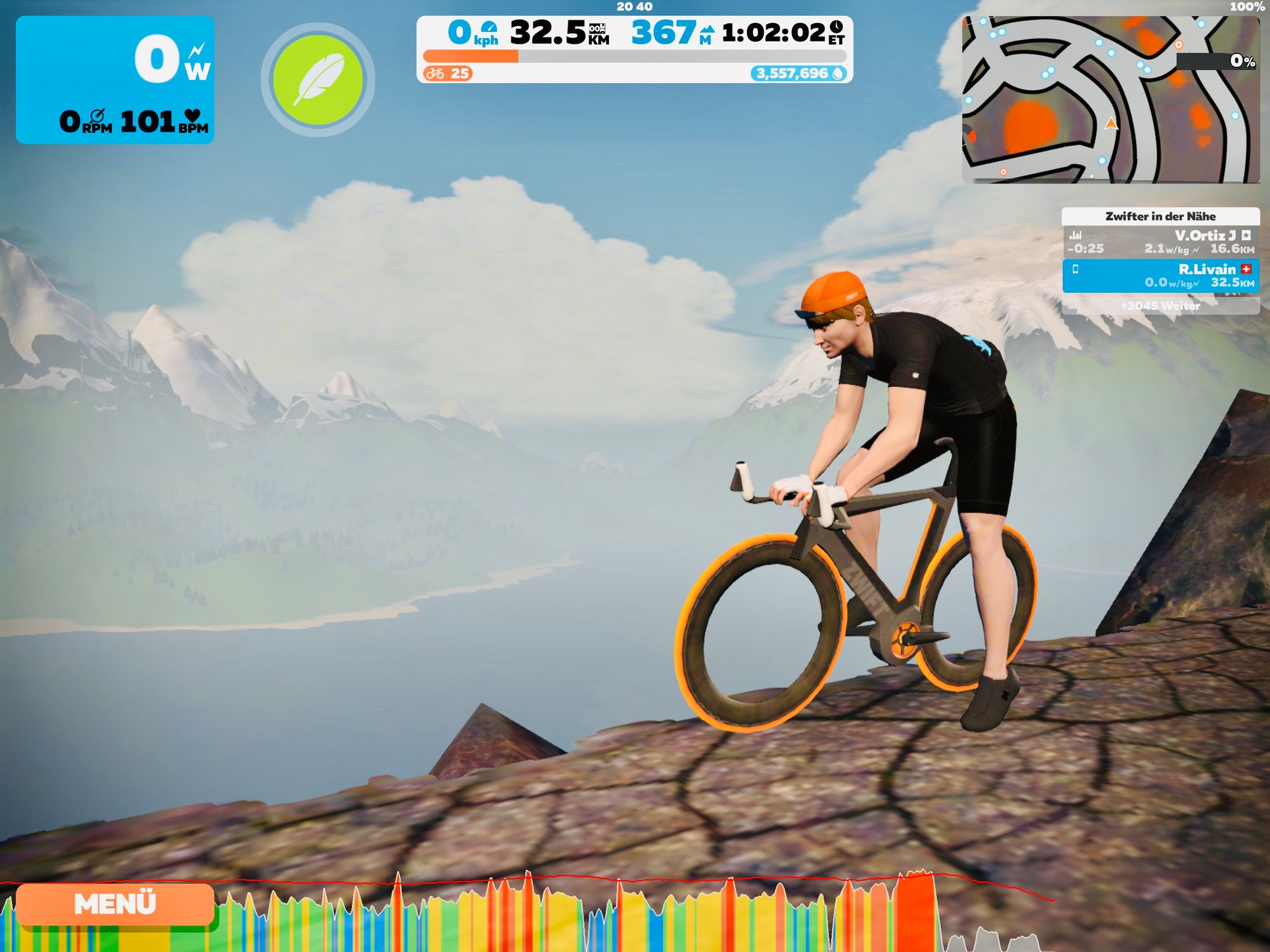Setting the Pace: Overcoming Mental Barriers and Setting Unobtainable Goals

Staying motivated during extensive indoor biking sessions is a complex challenge that encompasses both physical and mental barriers. Overheating, distractions, and the pull of other tasks are constant hurdles. But it's in these moments of hardship that I've found an unexpected tool for enhancing my performance: setting intangible goals.
Navigating the Virtual Roads
Zwift, an online training world, has been a game-changer for my indoor training sessions. The interactive environment mimics the dynamics of outdoor cycling, keeping my rides engaging and far more enduring than a mere glance at my wattage numbers. Yet, the comfort of home can also be a distracting lure, pulling my focus away from the virtual road ahead.
Challenging Myself Beyond Limits
There's a certain allure to setting out with the intention of embarking on a long training session—two, even three hours on the saddle. Yet, the comfort of home, the allure of other tasks, can turn this endurance challenge into a mental battlefield. Even when physical fitness isn't an issue, the psychological stamina needed to stay focused on the goal can wane.
Today, for instance, I planned for a lengthy session. Despite my resolve, I wrapped up the ride after an hour and twenty minutes. Sure, there's a voice in my head asking why I didn't meet my initial target, but I chose to look at it from a different perspective.
The Power of Intangible Goals
In retrospect, I think that setting such a daunting goal actually propelled me further than a smaller target would have. Had I aimed for a mere 45-minute session, I might have expended all my energy within that short window, unable to extend my ride by another half hour. In essence, the seemingly 'unobtainable' goal spurred me on, pushing me beyond a limit I might have otherwise set.
Balancing the Physical and Mental
The mental aspect of endurance training is a significant factor in overall performance, and it becomes even more pronounced during periods of rebuilding fitness. More often than not, it's not physical fatigue that reels me in, but the mental strain. To overcome this, I've found setting seemingly unreachable goals to be a powerful motivator.
By setting targets that seem beyond my grasp, I encourage myself to push further than I would when aiming for easily achievable goals. This technique has not only been a boon for my cycling training but also has found relevance in my life as an entrepreneur, a husband, and a father.
In conclusion, setting 'unobtainable' goals is a potent strategy that aids in overcoming mental hurdles and enhancing overall performance. It's about acknowledging that the power to push our boundaries resides not just in our bodies, but most importantly, in our minds.
